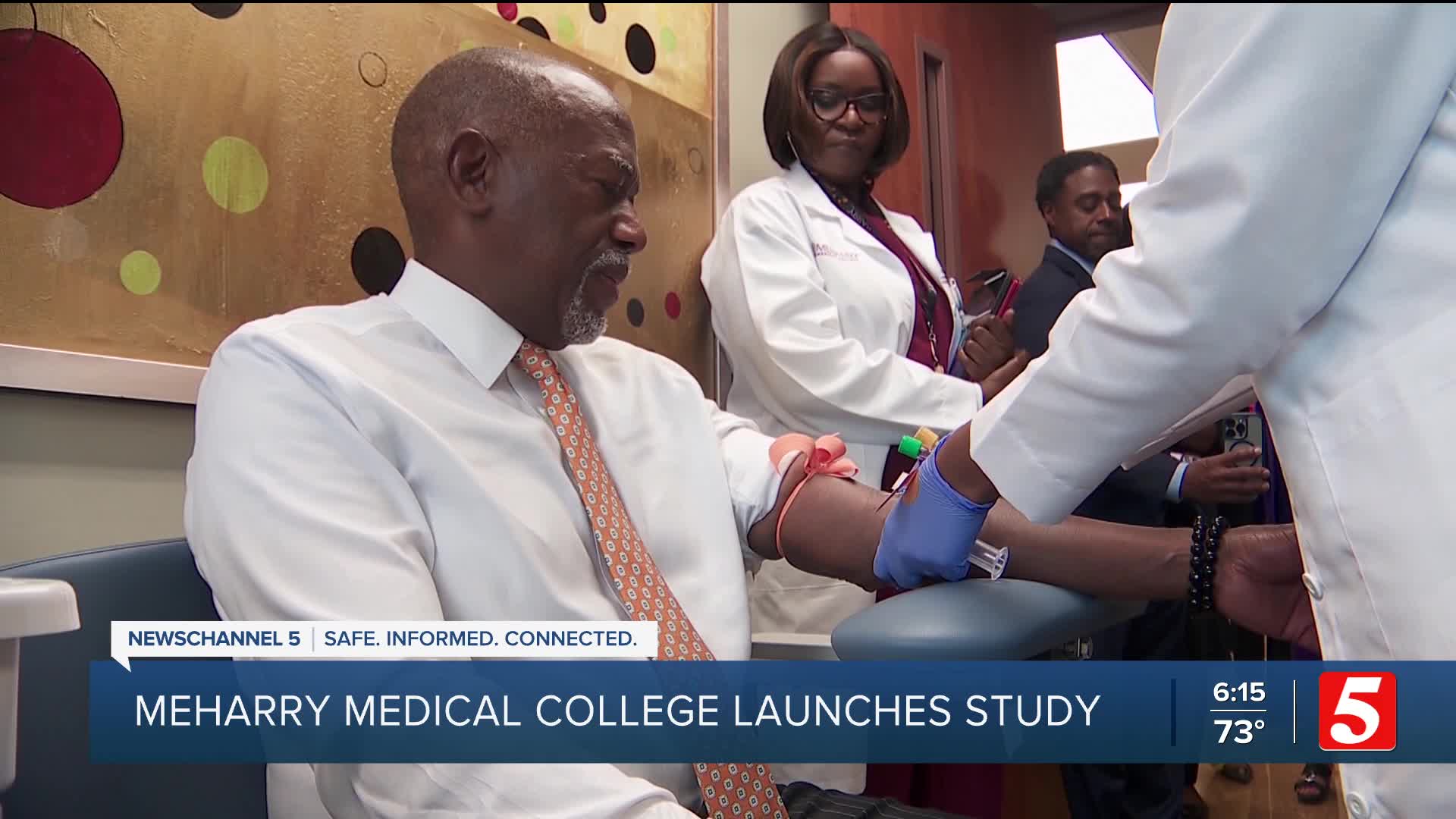NASHVILLE, Tenn. (WTVF) — Meharry Medical College has launched an ambitious new research initiative aimed at building the world's largest collection of genetic information from people of African ancestry to address health disparities and develop targeted treatments.
The GREAT Health Study seeks to collect DNA samples from 500,000 people with African ancestry over the next 10 years. The groundbreaking project was announced at an event where Dr. James Hildreth, CEO and President of Meharry Medical College, became the first donor.
"I'm really excited. This is probably one of the most exciting things I've been a part of," said Dr. James E.K. Hildreth.
The initiative addresses a significant gap in genetic research. According to Meharry leaders, only about 2% of all genetics studied comes from people with African ancestry. This underrepresentation can create disparities in medical treatments and drug development.
"The human genome holds secrets for treating diseases, understanding diseases, but more importantly, it's going to make sure that all of us benefit from the amazing sciences that's about to be done," Hildreth said.
The genetic database will help researchers better understand health challenges, improve risk assessments, and develop pharmaceutical treatments specifically for diseases that disproportionately impact people with African DNA.
"To know that my DNA becomes part of this large data set, we'll have to provide answers for rare diseases and diseases that we don't understand, you'll have solutions for, is a pretty amazing feeling," Hildreth said.
The study was designed with a clear mission in mind.
"GREAT study was born from a simple and powerful conviction that every community deserves to see its representation in the science that shapes its care," said Dr. Rajbir Singh, executive director for the Center of Excellence for Clinical and Translational Research at Meharry Medical College.
Participants can sign up through doctor visits, and Meharry has planned outreach efforts with churches and community organizations worldwide to encourage participation.
Researchers believe the genetic data will unlock new possibilities for addressing health challenges for generations to come through advanced technology.
"Once we have thousands and thousands of genomes, we can actually use artificial intelligence and the tools of data science to start unlocking some of the secrets that our DNA holds," Hildreth said.
Dr. Hildreth said the study is designed to allow participants privacy. Once their DNA is donated, the study will de-identify the donor, so it will be an anonymous part of the research pool.
Click here for information on donating your DNA.
This story was reported on-air by reporter Robb Coles and has been converted to this platform with the assistance of AI. Coles verifies all reporting on all platforms for fairness and accuracy.
Do you have more information about this story? You can email me at robb.coles@newschannel5.com.

The Jefferson Street Sound Museum is a great little gem in North Nashville. The founder and curator turned his home into a museum to keep the legacy of historic Jefferson street alive. Now, it's been named a stop on the U.S. Civil Rights Trail. Aaron Cantrell takes us inside.
- Lelan Statom





